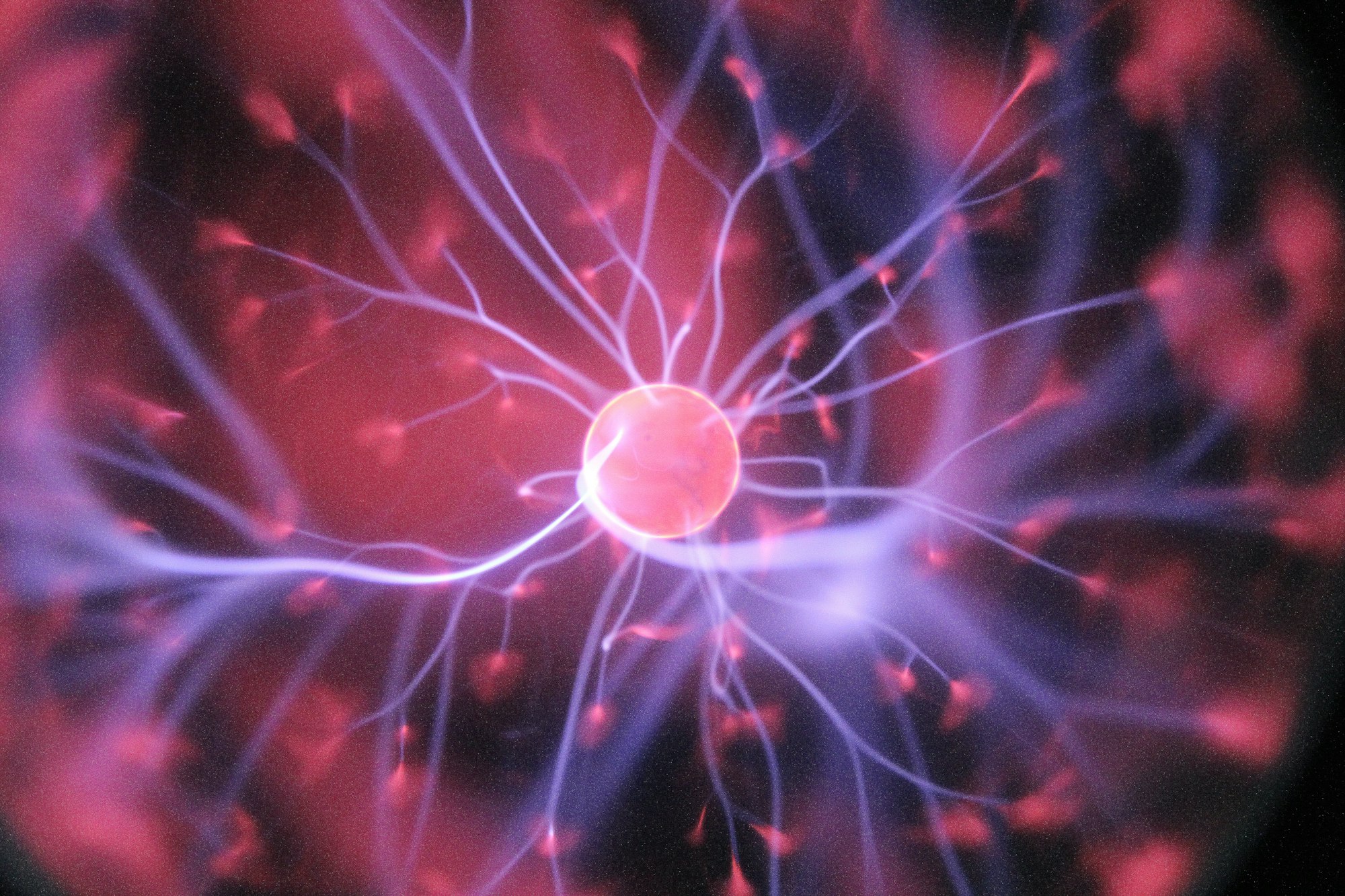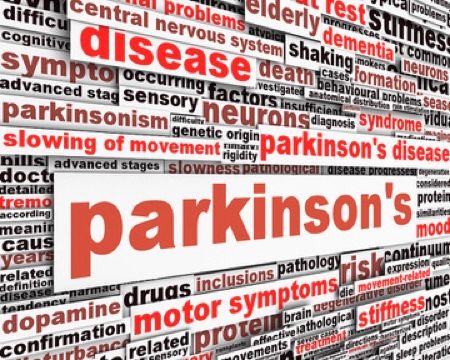What are the First Symptoms of Lewy Body Dementia?

What Is Lewy Body Dementia (LBD)?
Lewy Body Dementia is a progressive brain disorder that affects memory, thinking, behavior, and movement. It is the second most common type of dementia after Alzheimer's disease. LBD is caused by the abnormal deposits of alpha-synuclein protein in the brain, which disturbs the nerve cells’ ability to communicate with each other and disrupts the normal functioning of the brain. As the disease advances, physical, behavioural, and cognitive symptoms become increasingly worse.
It is important to familiarize oneself with the early signs of Lewy Body Dementia, as it can be difficult to diagnose in the early stages. Recognizing the symptoms as soon as possible can allow for earlier intervention, which is necessary to slow the progression of the disease and encourage better management of the condition.
Signs of Early Onset Lewy Body Dementia
Lewy Body Dementia is a progressive disorder that often begins to take effect in the later stages of life. Early symptoms of this type of dementia may range from mild to severe, with many patients experiencing some combination of impaired thinking, memory loss, and difficulty in controlling movements.
Common signs of early stages of Lewy Body Dementia include:
- Trouble recalling recent events
- Difficulty in navigating or making decisions
- Frequent changes in sleeping patterns
- General physical & cognitive changes
Lewy Body Dementia (LBD) is an increasing cause of memory loss and cognitive decline for many people as they age. It affects men and women of all ages, ranging from the middle-aged to the elderly. Though its exact prevalence rate is not known, LBD is thought to affect up to 1.4 million Americans.
Risk factors associated with LBD include being a male of advanced age, having a family member with the disorder, and having other neurological disorders such as Parkinson's Disease or Alzheimer's Disease.
It is important that those who believe they are at risk for LBD know the prevalence of the illness and understand the potential risk factors. Familiarizing oneself with the condition as well as the signs and symptoms can help to ensure an early diagnosis, as well as provide a better understanding of the care needed if and when it is diagnosed. Early diagnosis and treatment of LBD can be beneficial in slowing its progression and allowing for an improved quality of life for those suffering from it.
Linguistic and Speech Issues as a Symptom of Lewy Body Dementia
Lewy Body Dementia (LBD) can affect an individual's ability to communicate in multiple ways. One of the first symptoms of LBD is often difficulty in using language, recalling words, and speaking coherently. Because these symptoms may also be attributed to other forms of dementia, it is important to recognize them for what they are in connection with LBD.
People with LBD may experience the following linguistic and speech-related symptoms:
- Inability to recall words or names
- Trouble understanding written or spoken language
- Stuttering or slurred speech
- Muffling of speech
- Inability to remember conversations
- Difficulty in forming coherent sentences
These symptoms can be alarming not only to those experiencing them, but to their family members and caregivers as well. If you or someone you care for is exhibiting one or more of these symptoms, it is important to consult with a doctor so that proper diagnosis and treatment can begin as soon as possible.
Motor Symptoms of Lewy Body Dementia
In the early stages of Lewy Body Dementia, those affected may experience a decline in their motor abilities. Common motor symptoms include tremors, impaired coordination, poor balance, and shuffled gait. Tremors are particularly common among those dealing with Lewy Body Dementia, and they can affect the hands, arms, legs, and face.
In terms of coordination, hand-eye coordination may be hindered due to difficulty recognizing objects and manipulating them. Those with Lewy Body Dementia may have problems with fine motor activities such as using a fork or buttoning a shirt. Poor balance is also common, leading to unsteady walking, repeated falls, and difficulty standing.
A shuffled gait, which is a slow, shuffling walk, is often seen in those suffering from Lewy body dementia. This can lead to increased risk of falls and decreased physical activity.
Comparing Lewy Body Dementia to Other Forms of Dementia
Lewy body dementia (LBD) is a progressive neurodegenerative disorder that affects the brain and impairs thinking, behavior, and movement. It is one of the most common types of dementia and shares many symptoms with other forms such as Alzheimer’s disease, vascular dementia, and frontotemporal dementia.
The primary difference between LBD and other types of dementia is that LBD affects primarily the outer layer of the brain rather than the inner core. This typically results in prominent visual hallucinations, where sufferers have difficulty distinguishing reality from what is imagined or dreamt. Other symptoms may also include confusion, delusions, insomnia, muscle rigidity, and falls.
In comparison with Alzheimer’s disease, which is the most commonly diagnosed form of dementia, individuals with LBD generally experience more pronounced motor issues such as difficulty walking, balance problems, and tremors. Other differences include quicker cognitive decline in LBD, and less common tendencies for depression and behavioral issues in Alzheimer’s patients.
It is important to recognize the differences between each form of dementia, enabiling caregivers and health professionals to provide more effective and targeted care. Access to accurate information is key in helping to nourish meaningful relationships, ensure better quality of life, and reduce the impact of this condition on those affected.
Late Stage Lewy Body Dementia Complications
It is important to recognize potential complications that arise in the late stages of Lewy Body Dementia. These can include:
- Mobility Problems: Difficulty in moving around (using stairs, walking, getting up from a chair).
- Chronic Pain: Joint pain, stiffness, and other physical discomfort.
- Sleep Disturbances: Excessive sleeping during the day and insomnia at night.
- Infections: Urinary tract infections, colds, and other illnesses.
- Cognitive Decline: Memory loss, difficulty focusing, and confusion.
- Depression: Feelings of sadness, helplessness, and hopelessness.
These complications can lead to more serious medical issues if left untreated. It is therefore important to both educate oneself on the effects of Lewy Body Dementia and seek support from family members, caregivers, and other professionals.
When it comes to Lewy Body Dementia, understanding the legal implications is vitally important. It can be difficult to navigate these issues without the right guidance and support, which is why it’s essential to ensure that medical information is accurately shared with both patients and family members.
The legal implications of Lewy Body Dementia range from estate planning to ensuring that the patient's rights are protected from potential abuse or exploitation. In some cases, individuals diagnosed with LBD may need to transfer guardianship of themselves to a trusted family member or friend. Planning for end-of-life wishes should also be considered, as should protecting any assets they may have. It is also necessary to look into various legal options for applying for financial assistance and finding respite care for the patient.
For those dealing with Lewy Body Dementia, it is highly recommended that they seek the help of a knowledgeable lawyer in order to understand and navigate their legal rights and obligations. They should also seek advice from a healthcare professional who is familiar with LBD for the best course of action. It is equally as important for family members and caregivers to equip themselves with the information they need to help protect their loved ones.
It is ultimately crucial for everyone affected by Lewy Body Dementia to be aware of their legal rights and the implications they may have on the treatment, care, and quality of life of those impacted.
Seeking Help for Lewy Body Dementia
If you or someone you care about is exhibiting symptoms of Lewy Body Dementia, it is important to take the appropriate steps in order to seek out help. The earlier a diagnosis can be confirmed, the earlier treatment can begin. It is imperative that those affected receive the necessary medical services and support so that they can live as comfortably as possible.
It is recommended that one visits their primary physician and makes them aware of any noticeable changes that have been occurring. From there, your doctor can refer you to a specialist who can provide comprehensive assessment and testing to determine if it is indeed Lewy Body Dementia.
It is also important to inform family and friends, as having a support system is essential in helping those who are affected by the disease. Additional help may include joining a support group, training family members and caretakers how to best assist someone with Lewy Body Dementia, and talking with counselors or other healthcare professionals about appropriate interventions and treatments.
Available Treatments & Resources for Lewy Body Dementia
Living with Lewy Body Dementia can be an overwhelming and a challenging experience for the individual and their caregivers alike. It is important to be aware of the available treatments and resources that can alleviate some of the symptoms and improve quality of life.
Currently, there are no cures for Lewy Body Dementia. However, there is medication available that can help to slow down the progression of the disease and treat other associated symptoms including depression, anxiety and psychosis. Proper nutrition and exercise are also important components of managing the illness, as well as ensuring that the patient remains socially active. Regular doctor appointments and check-ups help to monitor the progression of the disease.
Caregivers are an integral part of helping an individual who is suffering from Lewy Body Dementia. Caregivers need to be informed about the condition, as well as have access to support networks. Many organizations offer support programs and resources to those caring for someone with Lewy Body Dementia, including information on housing and financial assistance.
It is also beneficial to be connected with a doctor or healthcare provider who is knowledgeable about Lewy Body Dementia and can provide regular updates on the person's condition. Healthcare professionals can also advise on additional treatments or resources that may be beneficial.
Providing Support for Those With Lewy Body Dementia
When it comes to providing support to those with Lewy Body Dementia, it is essential for family members, caregivers, and friends to understand the different aspects of the condition. This knowledge can lead to better care and quality of life for those suffering from the disease.
Caring for a loved one with Lewy Body Dementia can be both rewarding and challenging. It is important to have a plan in place that will help maintain consistency in the care and management of the individual with the condition. Communication is key, as it is important for family members, caregivers, and friends to understand how the individual is feeling and explain the situation to others.
It is also beneficial to create a team of professionals and supportive people that can help manage the unique needs of someone with Lewy Body Dementia. These individuals should include a doctor, nurse, therapist, and other specialized healthcare providers. Additionally, family members, caregivers, and friends should strive to stay organized and keep all relevant documents and contact information readily accessible.
When providing care to someone with Lewy Body Dementia, it is important to prioritize safety and provide a safe environment. This means being aware of potential dangers, such as slips, falls, or wandering. Additionally, it is beneficial to establish a routine and goal-oriented activities to help maintain consistency. Finally, it is important to remember that those with Lewy Body Dementia are still unique individuals that deserve respect and compassion.
It is of the utmost importance that we all educate ourselves on the effects of Lewy Body Dementia and advocate for those who suffer from it. While it is true that there is a considerable amount of misinformation about this form of dementia, arming ourselves with knowledge can help us recognize the signs of Lewy Body Dementia quicker and provide better support to those affected by it.
By having a better understanding of the various symptoms associated with Lewy Body Dementia, we can more accurately spot the warning signs in an individual’s behavior and seek the necessary medical help. Through spreading awareness and providing support for those suffering from this condition, we can make a real difference in their lives.
You might also like this article:










